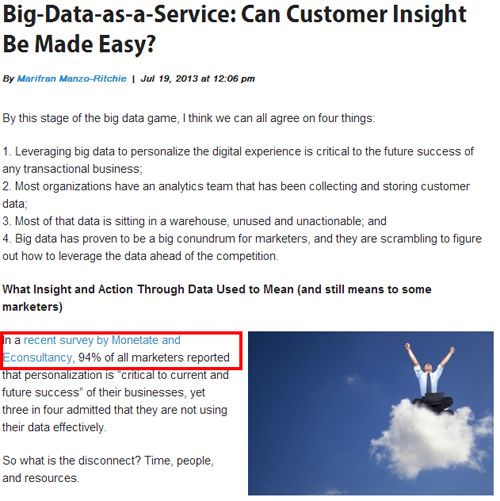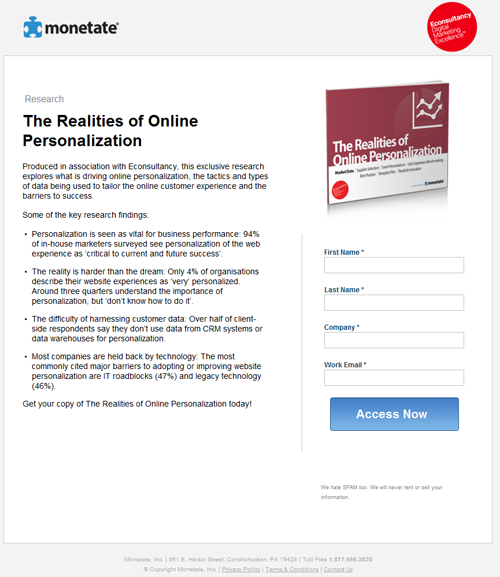One of the most frequent questions I’m asked is: How do I measure the success of my SEO and content marketing campaigns? If you’re collecting visitor data from Google Analytics or Omniture, you’re probably already looking at organic search referrals. But how are you tying that referral data back to your important business goals, or key performance indicators (KPIs)? In short:

How can you prove that your SEO and content publishing efforts are paying off?
The answer is that you need to define and measure conversion metrics (success events) that are tied to your business goals. They might be as simple as a visitor making a purchase on an ecommerce site, but for businesses with longer sales cycles or for publishers who are trying to increase page views, the idea of a conversion or success event may not be as clear. In those cases a whitepaper download, a newsletter subscription, or viewing a certain number of pages per visit may all be considered conversion metrics.
An Example of Creating a Conversion Metric from a Content Marketing Effort
When someone asked me about this recently, I happened to come across a solid example from a company called Monetate. Monetate offers a website optimization platform, and ultimately they want people to become paying customers. But they don’t just ask visitors to “Request a Demo” or “Contact Us.” They probably wouldn’t have much success with that approach.
So how do they get people to give them their contact information? They do it by providing something of value first. This is what Robert Cialdini describes as the first law of persuasion: reciprocity.
Reciprocation recognizes that people feel indebted to those who do something for them or give them a gift. For marketers, Cialdini says: “The implication is you have to go first. Give something: give information, give free samples, give a positive experience to people and they will want to give you something in return.”
Here’s an example of how Monetate puts this concept into action to create a conversion metric to help them measure the success of their content marketing efforts:
1. Monetate determines the challenges, pain points, and interests of their customers – these may only be tangentially related to their offering. For this example, they identify the fact that many of their customers have trouble making their data actionable.
2. They write a search-optimized blog post to address the problem they’ve identified. This allows new potential customers to discover Monetate through search engines and positions them as thought leaders.

3. The blog post isn’t that extensive – it’s snackable and sharable (top of conversion funnel) – but now that they’ve piqued the customers interest in the topic and are seen as a credible information resource, they can include a link to a free ebook. The ebook offers valuable free information in exchange for the potential customer’s contact information.

4. Since they’ve placed some conversion tracking code on the contact form, Monetate now has a measurable conversion metric they can tie back to their SEO and content marketing efforts. And since they now have the customer’s name and email address in a targeted list, they can begin to open up a dialogue with the customer by following up with an invite to join a webinar or see a product demo.
It’s surprising how often businesses can lose sight of why they built their website in the first place. In every case I can think of, you want your site visitors to take some kind of action. It’s essential to the success of your business to define what that action(s) is and how you will measure it. And here’s an important tip: don’t always think only in terms of the ultimate goal; think about measuring intermediate goals that become stepping stones leading you down the path toward success.
Do you have any examples of sites that do a great job of creating optimized content designed to inspire visitors to take action? If so, please share in the comments!
